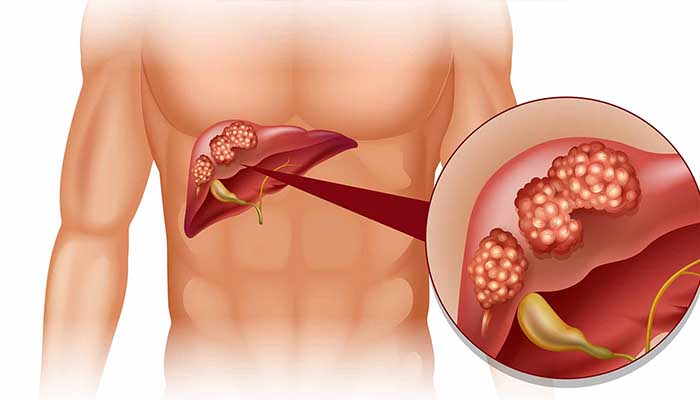Preventive Healthcare
Liver Function Tests: Normal Range, Purpose, Procedure & Results

Table of Contents
The liver is a vital organ that helps the body process food, store energy, and remove toxins. Hence, any form of malfunction can become a serious problem. Liver function tests (LFTs) are conducted to check if the liver is functioning optimally. These blood tests check the liver's health by measuring different proteins and enzymes present in the organ.
The Purpose of a Liver Function Test
LFTs can help assess how well the liver works and identify any problems. These are generally necessary to screen for conditions such as hepatitis, both viral and alcoholic, liver cirrhosis, and side effects caused by any particular medication. It can also monitor the treatment for a particular liver condition.
Types of Liver Function Tests
A variety of different liver function tests can be performed, each of which looks at different aspects of liver function. Common tests include measurements of bilirubin, Alanine transaminase (ALT), Aspartate transaminase (AST), Alkaline phosphatase (ALP), albumin and total protein, L-lactate dehydrogenase (LD), and Gamma-glutamyltransferase (GGT).
- Bilirubin: This is produced during the breakdown of red blood cells and is found in stool. Increased levels of bilirubin might point to a condition like jaundice.
- Alanine transaminase (ALT): This enzyme helps break down dietary protein into energy for the liver. High levels of ALT indicate liver damage.
- Aspartate transaminase (AST): This enzyme, similar to ALT, is present in the bloodstream. It helps the liver break down amino acids.
- Alkaline phosphatase (ALP): This is another enzyme found in the liver that helps break down protein. It is also found in the bones.
- Albumin and total protein: Albumin helps to protect the body from infections. When this essential protein is low in the liver, it indicates liver damage.
- L-lactate dehydrogenase (LD): High levels of LD can indicate liver damage, but it is not a clear indicator in all cases.
- Gamma-glutamyltransferase (GGT): Another enzyme found in the blood. High levels can be interpreted as signs of liver damage.
Risks Involved
Liver function tests are important diagnostic tools, but they have minor risks. This will mostly happen when the blood sample is drawn from the patient. In some cases, it can lead to soreness or bruising. Apart from that, no other major risks are involved with an LFT test.
How to Prepare for Liver Function Test
If your doctor has ordered liver function tests (LFTs), it is important to know how to prepare for them. Blood will be drawn for the tests for which doctors need access to a vein. To help make the process go smoothly, it is recommended that you do the following:
- Drink plenty of fluids in the days leading up to the LFT blood test. This will help keep your veins hydrated and make it easier for the phlebotomist to draw blood.
- Avoid alcohol for at least 24 hours before the test. Alcohol can interfere with liver function and could skew the test results.
- Eat a healthy diet in the days leading up to the test. A healthy liver functions best when it is well-nourished.
- Talk to your doctor about any medications you are taking. Some drugs can affect liver function tests, so your doctor may need to adjust your dosage or have you stop taking them temporarily.
- Before the test, you will likely be asked to fast for 8–12 hours. This means you shouldn't eat or drink anything during that time, except for water. Fasting helps ensure accurate test results.
What to Expect During and After The Test?
During the LFT test, a small blood sample will be taken from a vein in your arm and sent to a laboratory for analysis. The entire process usually takes less than 30 minutes.
After the test, you can resume your normal activities and diet. You may experience some bruising at the needle site, but this should go away within a few days.
If the blood analysis is done on-site, you might receive the test on the same day. Otherwise, it might take a few days.
What are Normal Test Results?
Normal results for liver function tests may vary depending on the specific test being performed. However, generally, results are considered within the normal range if they fall within the reference range provided by the laboratory that runs the LFT blood test.
For reference, here’s a look at some normal test levels among adult men:
ALT- 7 to 55 units per litre
AST- from 8 to 48 units per litre
ALP- 40 to 129 units per litre
Albumin- 3.5 to 5.0 grams per deciliter
Total protein- 6.3 to 7.9 grams per deciliter
Bilirubin- 0.1 to 1.2 milligrams per deciliter
GGT- 8 to 61 units per litre
LD- 122 to 222 units per litre
It is important to note that just because test results are within the normal range does not necessarily mean that the liver is functioning optimally. Similarly, if results are outside the normal range, it does not necessarily mean something is wrong with the liver. To get a complete picture, liver function tests should be interpreted with other clinical information such as symptoms, medical history, and physical examination findings.
Conclusion
Liver function tests are an important tool in diagnosing and monitoring liver health. Talk to your doctor if you have any concerns about your liver function. They can order the appropriate tests and help you interpret the results. To undertake an accurate and convenient LFT blood test, contact us at Metropolis Health. An experienced player in medical diagnostics, our nominal LFT test prices increases the convenience factor even further. With hundreds of labs spread across several countries, you can undertake various tests in our facilities, such as CRP tests, stress tests, kidney function tests, and more.


























